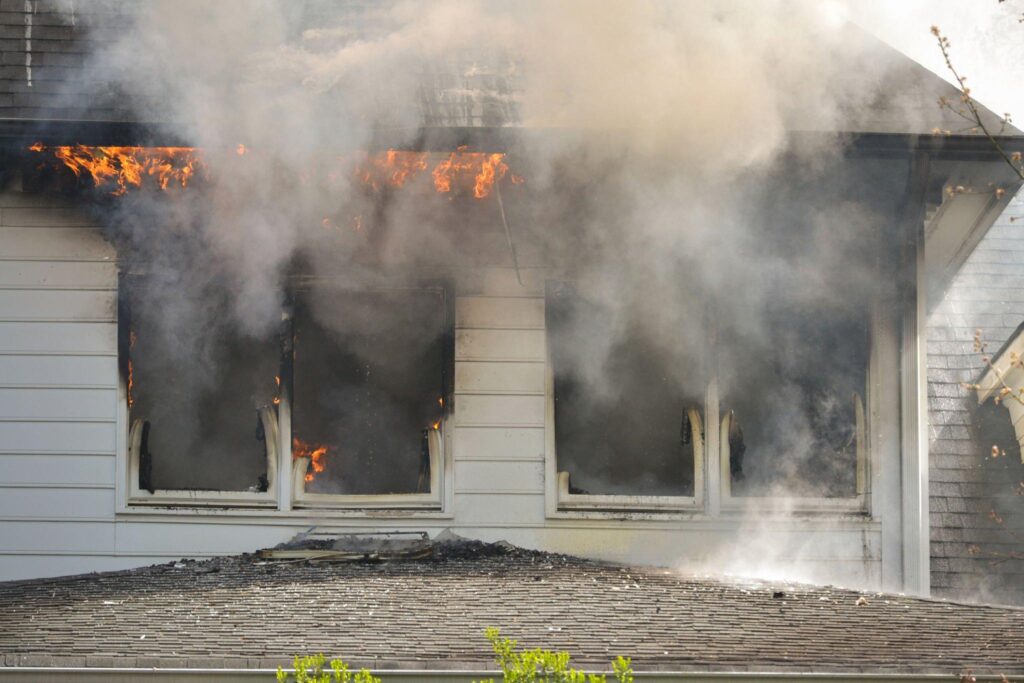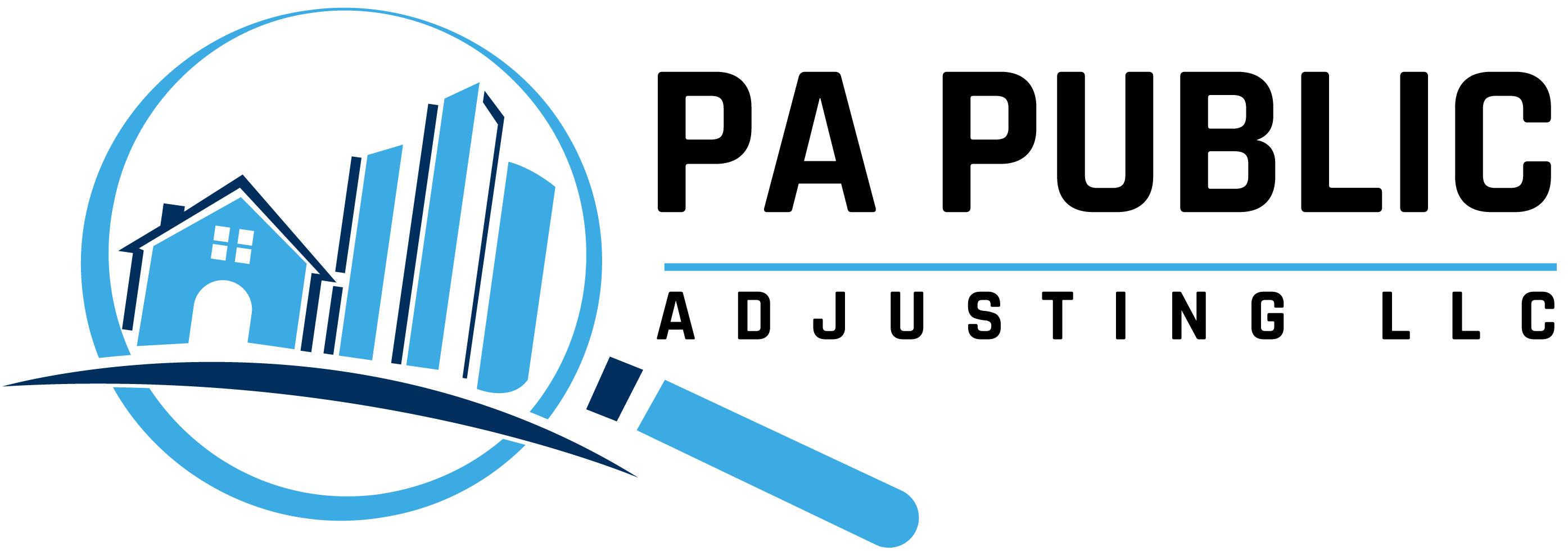FIRE & SMOKE DAMAGE
- Home
- SMOKE & FIRE DAMAGE INSURANCE
WE’RE SMOKE & FIRE DAMAGE INSURANCE EXPERTS
From smoke damage restoration to helping you file an insurance claim, our experienced public adjusters can help you every step of the way.

FIRE & SMOKE DAMAGE
Experiencing a house fire can be difficult at best and terrifying at worst.
You may lose belongings, be displaced from your home while repairs are being made, or your home may be a lost cause altogether so you have to start over with somewhere new to live.
However, there are steps you can take to be prepared in case of a house fire, and professionals like smoke and fire damage restoration technicians and public adjusters who are ready and capable of helping you clean up, file smoke damage insurance claims, and more.
During a house fire, your home and much of what’s inside may not only be burned by the fire, it may be damaged by heat, smoke, and water from putting out the fire.
What’s more, the firefighters might have had to break windows and cut holes in the roof and walls in order to quell the flames and ensure that there are no embers or fires still burning in hidden areas.
Depending on the severity of the fire, the property may be a total loss if the fire manages to move through the home quickly.
If the home is not completely destroyed, you will likely still need to hire professional restorers to clean the house, remove any smoke or chemical residue, and clean up any water damage, patch up any holes, and fix broken windows that may have been the result of the firefighters doing their jobs.
House fires are more common in dry areas and areas prone to wildfires; that said, they can happen anywhere and for a variety of reasons – everything from leaving a candle or cigarette lit somewhere to an electrical or gas problem that can cause a home to catch on fire.
Smoke can leave stains on the walls and ceilings, rust and corrosion on metal appliances and hardware, and destroy fabric items like furniture and curtains. Fire and smoke can also damage vehicles housed on the property and landscaping like trees, shrubs, grass, and other plants situated near the house. Be aware that smoke damage is not always obvious – smoke residue can linger inside the walls or ceilings, in the HVAC vents, and in any number of other places you won’t see right away. Another thing to keep in mind is that it is not safe to stay in or sleep in a house that has suffered from smoke damage until it has been professionally cleaned, properly ventilated, and declared not to be a health risk. Smoke particles can be suspended in the air for a significant amount of time; besides, smoke damage can take several days or longer to show up on the walls, curtains, ceilings, and appliances in the form of discoloration, rust, and corrosion.
While you can never be totally prepared for every possibility, there are steps you can take to ensure that you, your family, and your property are more likely to be able to deal with a house fire with minimal effects.
The first step towards being ready for a house fire is having smoke alarms installed on every level of your house, inside the bedrooms, near or in the kitchen, and outside the sleeping areas.
Test the batteries monthly (set up a calendar alert to remind yourself) to make sure they are active and ready to alert you in case of a fire.
What’s more, you should have a fire escape plan prepared and make sure everyone in your family knows how to execute it (or help others escape in the case of small children or the elderly, or anyone who might need assistance).
Your escape plan should also include pets if applicable, and having any important documents in one spot and handy and scanned into a secure account in the cloud or on a hard drive or both is always a good idea.
Of course, the most important thing to do after a house fire is to ensure that you and your family (including pets) are safe and have been checked out by healthcare professionals. Never enter a house or other structure that has not been given the “all clear” by the local fire department, and you should never sleep in a house after even a minor fire that was contained to just one room since dangerous smoke particles can spread throughout the house and linger for a while. Rather, let the house air out and have the property confirmed to be safe by professionals.
If your property is not a total loss, you may be able to salvage it. That said, while some items can be cleaned after a house fire (usually metal items like pots and pans and silverware), some things like furniture (especially upholstered items), clothing, curtains, bedding, and similar things are likely a lost cause. In general, anything that smells like smoke or soot, has smoke discoloration, or is covered in dust from fire extinguishers should be tossed out since those dangerous chemicals can linger. Anything that doesn’t appear to be damaged and doesn’t smell like smoke or chemicals can potentially be disinfected, but it is likely best to leave that to the experts who specialize in fire and smoke clean-up.
You will also want to call your utility providers and have water, gas, electricity, and other services shut off; also, you should contact your insurance company and a public adjuster as soon as possible.
Read on to learn more about that process.

